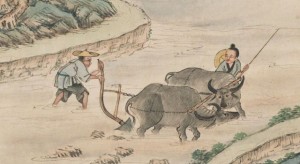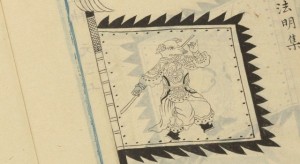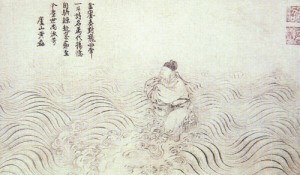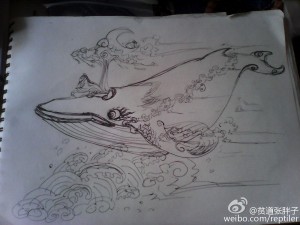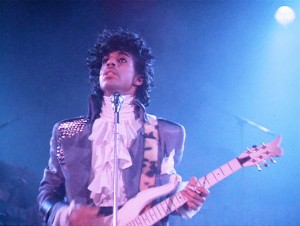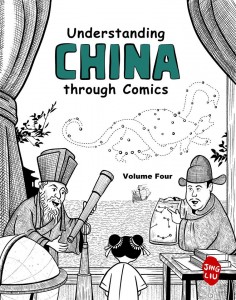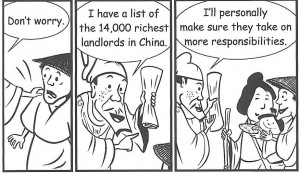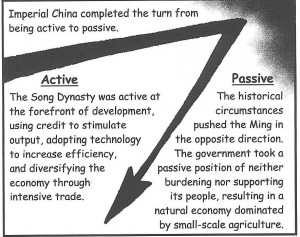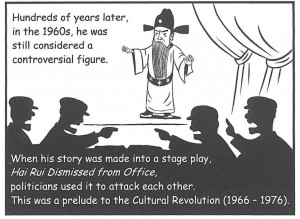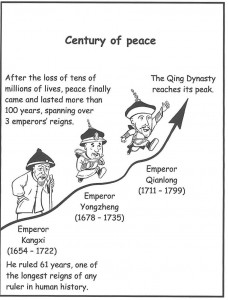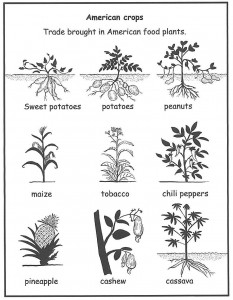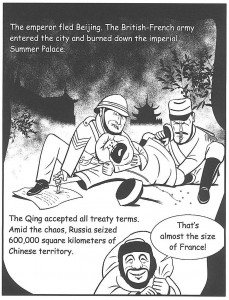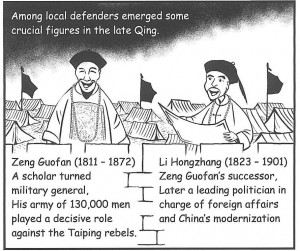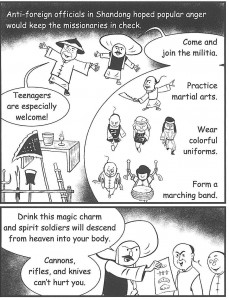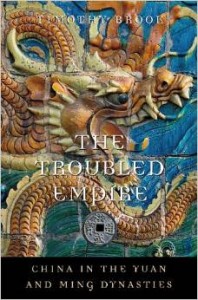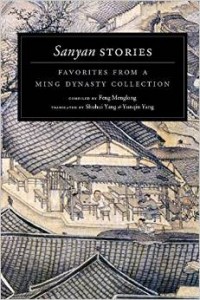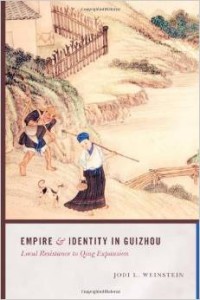Yuan Mei’s Garden of Accord Food Book has been translated into English. This is one of the classic Chinese texts on cooking, and by reading it I have already learned why my red-cooked meat is so inconsistent (cooking time matters a lot, so I guess you can’t just ignore it while you work on something else) and some always good general advice.
Information about Uncertain Tastes
We want the dishes taste rich, but not greasy; or taste light, but not plain. It is really hard to fully understand and grasp the skill. Slight mistakes lead to poor cooking. When we say rich flavor, it means that the cook should extract the essence and reject the dross. If one pursues only richness and heaviness, why not just eat lard? To “taste fresh and light” refers to bringing out the prominent good flavor. If one seeks only weak and tasteless things, why not just drink water?
i.e. don’t overdo it. Except with garlic. There is no such thing as too much garlic.
As you might expect, there is also plenty about how preparing food properly is analogous to all the other things a gentleman does.
Don’t Overcook the Food
Everything has its basic nature, and cannot be distorted to be something else. Let nature take its course. For a good thing like birds’ nests, why mash it down to make a ball? A sea cucumber is a sea cucumber, why cook it down to a sauce? When watermelon is cut, it won’t stay fresh for long. Why make it into cakes? When apples are too ripe, they are not crisp. Why steam them to make dry fruit? Other things like Autumn Vine cakes from Zun Sheng Ba Jian and Magnolia Cake made by Li Liweng are all pretentiously overcooked pieces. It’s like twisting osier branches to make cups—they lose their main features. It’s also like daily ethical behavior; one can benefit the household just by performing normal good virtue. There is no need for strange practices.
While the book is essential for understanding the development of Chinese food, Yuan Mei is a pretty simple cook, who would be lost in the world of modern Chinese banqueting.
Don’t Eat with Your Ears
What is an “Ear Banquet”? It is a dinner provided in pursuit of fame. Wishing to serve something precious, so as to boast to the guests, is an ear banquet, not really [the serving of] a delicious dish. You should know that if tofu is done well, it’s better than birds’ nests. And if you don’t cook sea cucumber [the text says “sea vegetable,” which Giles 1923:261 takes as an error for sea cucumber] right, it’s not as good as vegetables and bamboo shoots. I have said that fish, chicken, pork, and duck are the knights of the kitchen. Each has its basic own flavor and cooking style. Sea cucumbers and birds’ nests are like ordinary persons—no characteristics. They can be cooked well only with the help of other food. I have seen an official’s dinner, each bowl is as big as a big jar, containing four liang of water-cooked birds’ nest—no taste at all. The guests were trying to compliment him. I smiled and said: “we came here to eat birds’ nests, not to traffic in birds’ nests.” If the valuable item hasn’t been cooked well, although there’s large amount, it’s a waste. If he serves it only to boast how rich he is, why can’t he just put a hundred jewels in each bowl, or a quantity of gold? Then it doesn’t matter if it’s inedible.
(Birds’ nests, by themselves, are tasteless. Their virtues, other than the medicinal one of providing digestible protein and minerals, are that they provide a crunchy texture and are very good at absorbing other flavors. They are good only if cooked in a very flavorful soup. Sea cucumbers, also valued more for their medicinal protein and mineral value than for their flavor, are somewhat more flavorful, but do indeed need much supplementing to make them good.)
Don’t Eat with Your Eyes
What is an “eye meal”? An eye meal is one in which there are too many dishes at a time. Now some people pursue the fame of the food; they cover the table with dishes and stacks of plates and bowls. They eat with their eyes, not with their mouths. [Angl. “their eyes are bigger than their stomachs.”] They don’t know that when famous writers and calligraphers write too much in a short time, there must be some failures; when famous poets write too many poems, there must be some bad lines. It is the same with a good chef. In one day, he can probably make four or five good dishes; that is about his limit. But to arrange a huge feast, even with others’ help, most likely will result in a mess. Because more people come to help, there are more different opinions. [“Too many cooks spoil the broth.”] This can result in bad discipline during the cooking. I once went to a merchant’s house for dinner. They had three tables of dishes—desserts of sixteen types, total main course dishes of more than 40 types. The host felt proud of his treats, thinking it must have increased his face in front of the guests. However, after I got home, I needed to cook some congee to satisfy my hungry stomach. Due to my experience, I think this merchant’s dinner was less than successful—indeed, it was not very sophisticated! The Southern-dynasty writer Kong Linzhi (369-423) once said: “People nowadays have many dishes, but rather outside the mouth—it’s more for the eyes’ satisfaction.” In my words, too many dishes on one table create unsatisfying views as well as unsatisfying flavors.
They are looking for a publisher, so if you happen to own a press, or have enough money to provide a publication subsidy, you should get in touch with them.
http://www.krazykioti.com/

